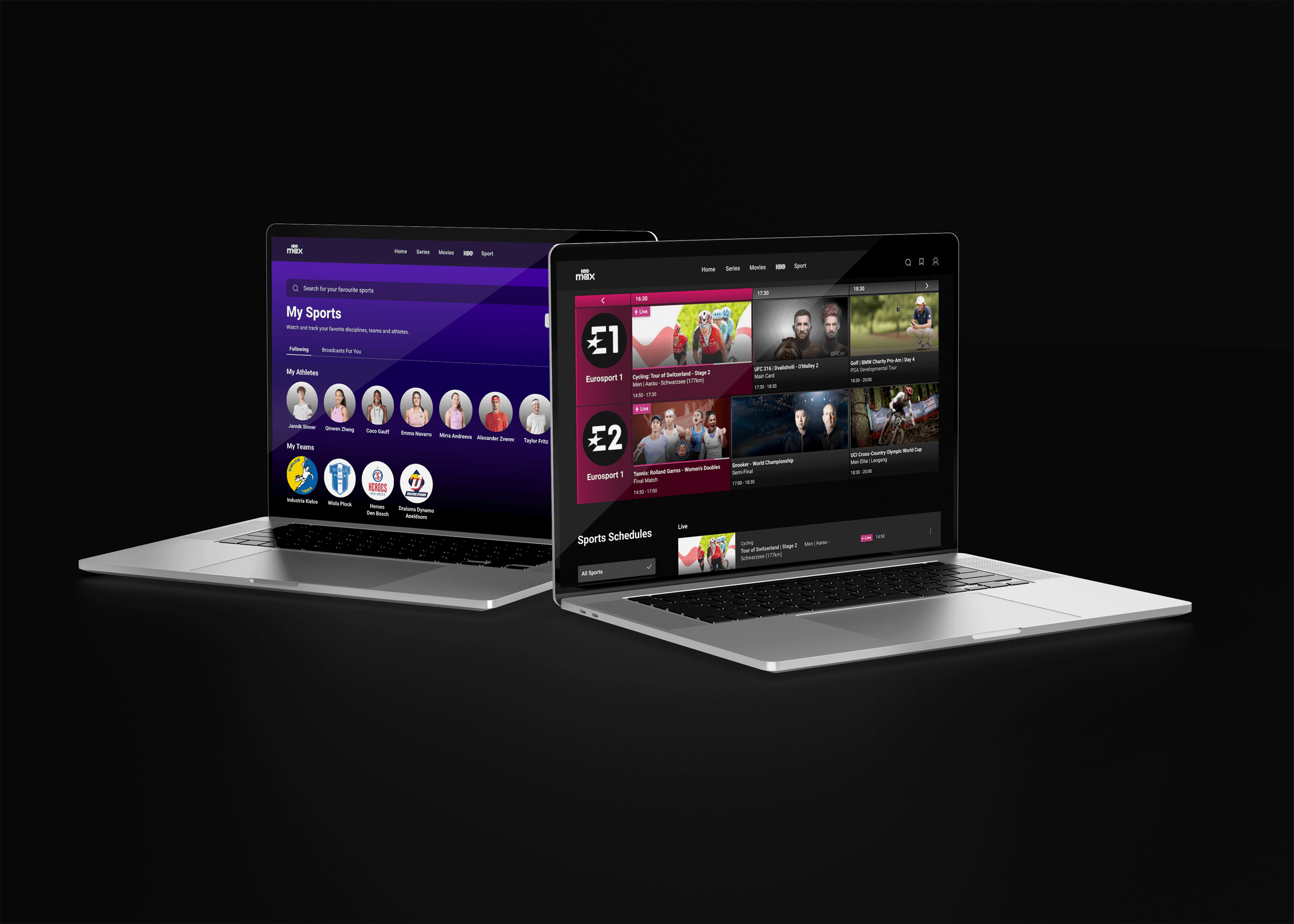Tackling fragmentation: reimagining the TV streaming experience for HBO Max Sports
This solo case study documents the process of designing a sports streaming platform. Its starting point is the hypothesis that users are frustrated by the fragmented experience of checking sports schedules. Through research and strategy, I settled on redesigning the Sports section of HBO Max Sports. The result, among other changes, includes a brand new “My Sports” section and a revised TV Guide.
Software used:
Figma + FigJam, Airtable
Created by:
Borys Kapica
Date:
March 2025 – August 2025

Product Design